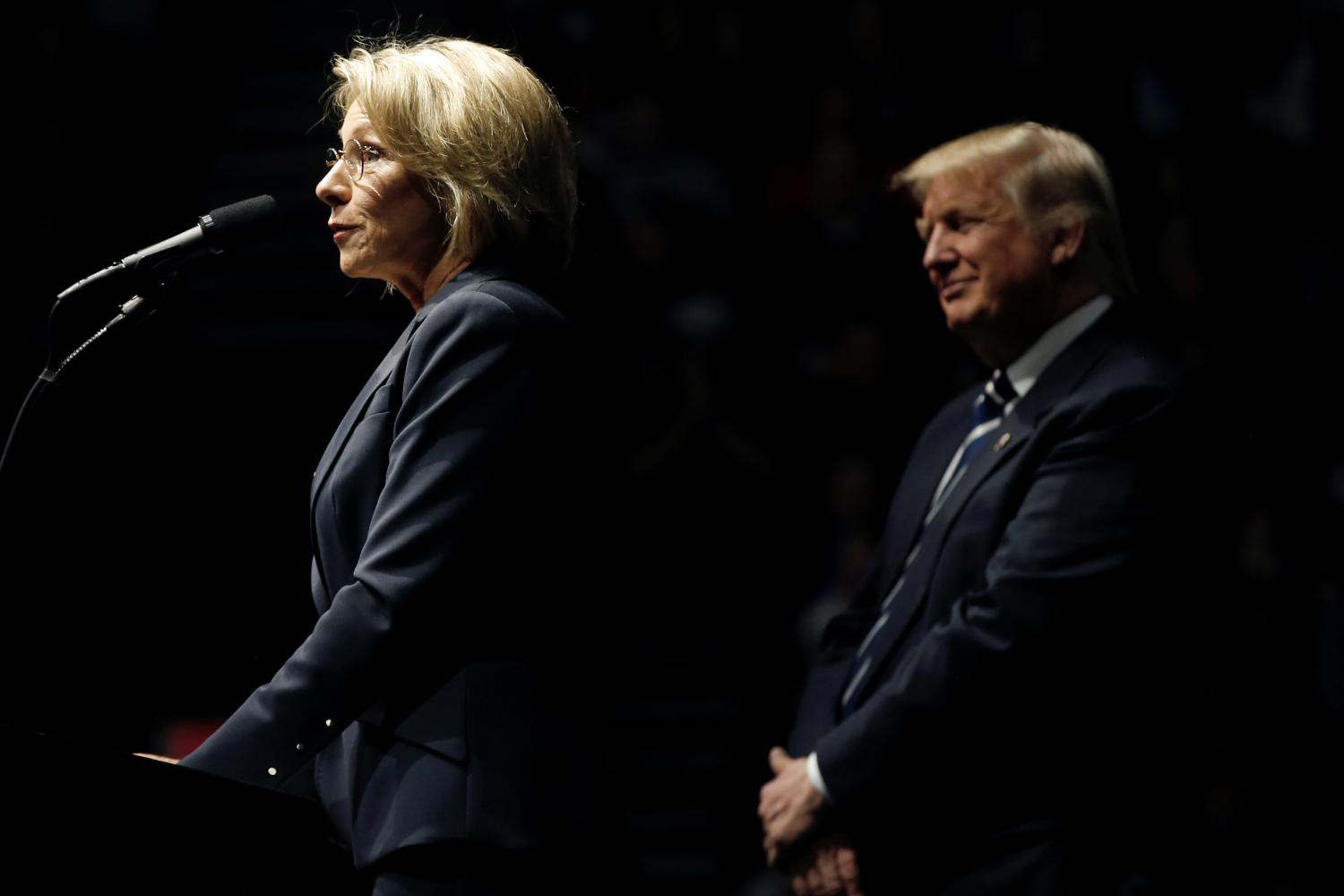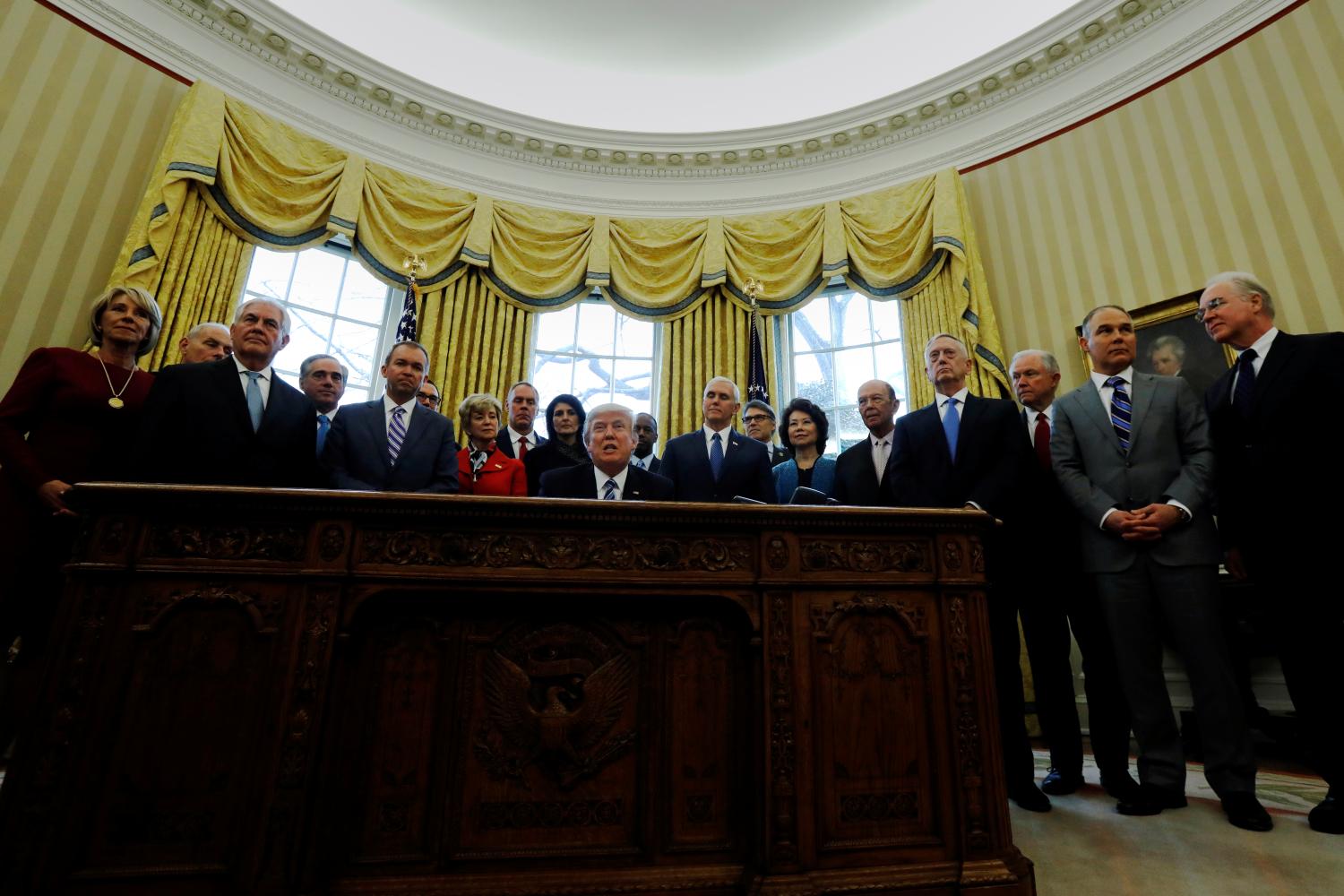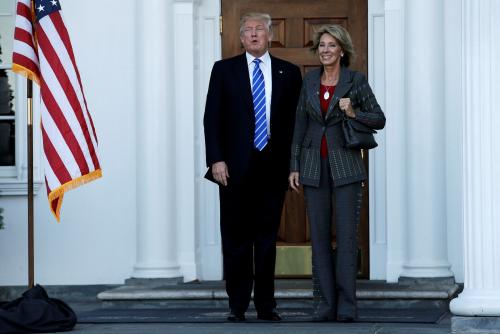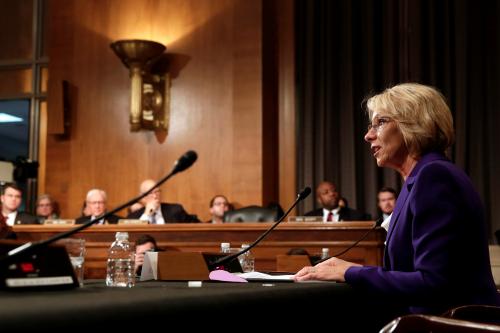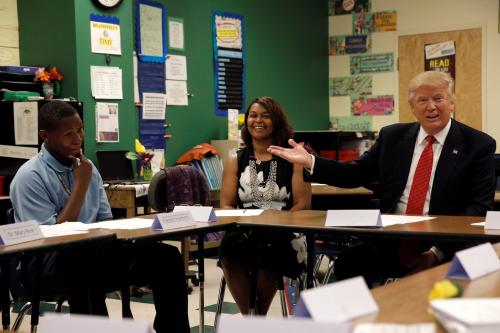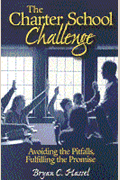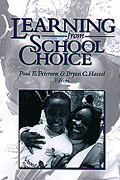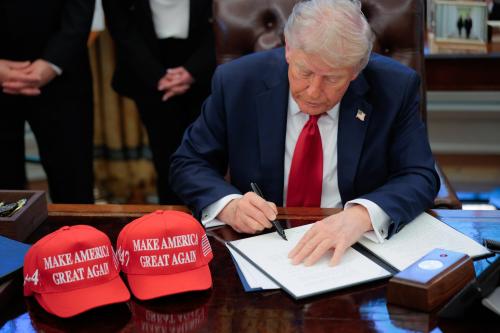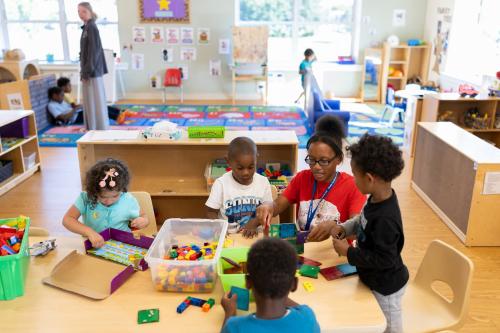The confirmation hearing for Betsy DeVos, President-elect Trump’s nominee for education secretary, is scheduled for this week. DeVos made her reputation as an advocate for charter schools but the Department of Education covers a much broader area. As a result what we know about DeVos hardly scratches the surface with respect to her views of education and plans for the Department of Education (ED). Here, we pose five questions to DeVos in anticipation of her hearings.
Question 1: What is your plan for increasing two- and four-year college access and completion?
College affordability occupied a prominent place on the agenda throughout the recent election. The Department of Education’s Federal Student Aid office is responsible for administering federal financial aid, and a poll from June 2016 suggests that many believe the federal government, rather than state and local authorities, is best situated to address issues of college affordability.[1]
Particularly given concerns among Trump voters about the lack of job opportunities for working-class Americans, it seems that a policy window is open for reinvesting in career and technical education programs. This work falls under the purview of the Department’s Office of Career, Technical, and Adult Education (OCTAE). What policies would the OCTAE pursue under DeVos’s leadership, and how would she work with Congress on renewing the Perkins Career and Technical Education Act?
Question 2: What role do you see for the Office for Civil Rights?
The Office for Civil Rights (OCR) in the Department of Education is charged with enforcing federal civil rights laws in programs and institutions that receive federal funds from the Department.
Since Trump’s victory, many have speculated that the OCR will take a less forceful stance than it did under the Obama administration and may face budget cuts or staff reductions. There will certainly be support for this change from a number of quarters, with accusations of executive overreach on issues from sexual misconduct hearings on college campuses to transgender student rights. What are the appropriate roles for the OCR, and to what extent would its current level of resources change?
Question 3: As Secretary, what would you view as appropriate uses of executive action?
Secretary Arne Duncan used competitive grants through Race to the Top and waivers under No Child Left Behind to pursue the Obama administration’s agenda, strategies that critics labeled as executive overreach. State chiefs and the public are unlikely to look kindly upon any policies coming from ED that come with strings attached, particularly given that the Every Student Succeeds Act (ESSA), No Child Left Behind’s successor, returns a great deal of authority over education policy to states.
At the same time, DeVos has been clear about her hopes to pursue a school choice agenda as secretary. While ESSA restricts the conditions that the secretary could attach to waivers, many avenues for setting the agenda and incentivizing specific policies remain open to DeVos. In this environment, what strategies constitute appropriate uses of authority in pursuing the Trump administration’s agenda?
Question 4: What are appropriate roles for traditional public schools, charter schools (for-profit and nonprofit), and private schools in the K-12 education system?
President-elect Trump has called school choice “the new civil rights issue of our time” and pledged $20 billion in federal funding to enable poor families to enroll in private or charter schools. DeVos, herself, has worked for—and contributed to—organizations that advance school choice reforms such as private school vouchers and charter schools. Moreover, she is regarded as an architect of the charter school system in Michigan, where about 80 percent of charter schools are for-profit organizations that attempt to profit by spending less than their per-pupil funding allotment.
Which particular school choice reforms will the Department of Education pursue, and how will it fund these reforms now that ESSA is being enacted?
Question 5: What are the goals of K-12 education in the United States?
Historically, the U.S. has relied on its public schools to serve a variety of purposes. These include both “private” purposes, like preparing students for college and professional success, and “public” purposes, like nurturing the country’s broader social, economic, and political health. Recent education policy has tended to emphasize academic learning, but the U.S. has a long history of looking to schools to develop character and civil responsibility, promote physical and emotional health, and serve a variety of other goals.
To successfully lead the Department of Education to action, one must first articulate the purposes of those actions. What are DeVos’s goals for public education in the United States, and what will constitute success in meeting these goals?
Conclusion
There are, of course, many additional questions that we might pose to DeVos, including questions about her finances and potential conflicts of interest. We have opted for five substantive policy questions, each of which would help the public better understand how a DeVos administration at the Department of Education could impact the nation’s schools.
[1] Survey by Allstate, Atlantic Media. Methodology: Conducted by FTI Consulting, June 19 – June 24, 2016 and based on 1,000 telephone interviews. Sample: National adult. 500 interviews were conducted on landline telephones, and 500 were conducted on cell phones. [USFTI.071316.R31A]. Survey accessed via iPoll at the Roper Center for Public Opinion Research.
The Brookings Institution is committed to quality, independence, and impact.
We are supported by a diverse array of funders. In line with our values and policies, each Brookings publication represents the sole views of its author(s).


